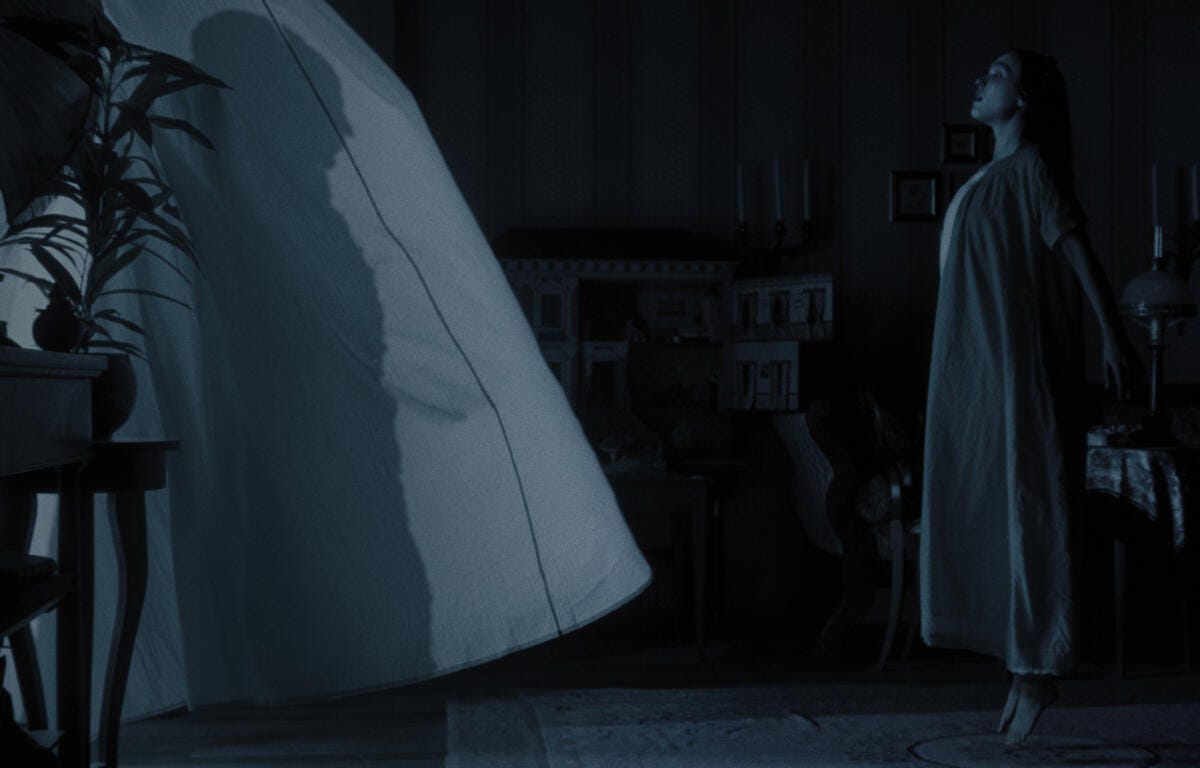Doing remakes is not easy, especially when you want to make a film that’s good. There are lots of remakes that are not, unfortunately, even close to being good. However, that’s not the case when it comes to director Robert Eggers, whose latest venture into the dark world of 1838 Germany took the form of a film called Nosferatu.
What fascinates me about Eggers is the amount of research he does in order to make sure he’s making a film that’s cogent. I recently and for the first time wrote a small piece about how much I admire Eggers debut film, The Witch. He went through a lot of research to make that film. Now as well as Noferatu and obviously two other titles that I admire, The Lighthouse and The Northman.
Even though Nosferatu is a remake, it still is purely a Robert Eggers picture. He owns it from the first shot to the final with confidence and, along the way, guides the crew and his actors by bringing something fresh.
I’m not an aficionado of vampires or even the concept of Dracula; however, if something’s convincingly written and directed, I can be, let’s say, convinced. Sometimes for me, that’s all it takes, even though I admire more realism than fantasy.
Honestly, it all comes down to the filmmaker and his/her approach to the cinematic medium. We have filmmakers who don’t unfortunately do research and make films for the sake of making films, and then there are filmmakers like Eggers who respect the entire process, the whole nuts and bolts of each project.
Like Eggers’ debut feature, The Witch, Nosferatu, in my opinion, is not a horror film. It might, on the surface, seem like it or even feel like it, but ultimately, it’s a psychological drama depicting in its subtext tragedy and, like Eggers’ past films, isolation.
There’s enough suspense and paranoia, and it’s admirable that Eggers has kept the level of both dread and fear at a minimum in order to make room for the atmosphere to be seen, felt, and understood, for Nosferatu is ultimately about atmosphere, which I absolutely not only adore but respect.
I love all the grounds covered in snow or rain, while above we have gray skies and those dark green trees in the distance, and at times we see the ones that are bare and lifeless while our characters go about their daily activities. And of course, the costumes as well as the sound design are top-notch as well.
For me, paranoia is presented through the atmosphere first rather than the sorrow, anguish, and Ellen Hutters (the wonderful Lily-Rose Depp). The atmosphere was so genuine that I could smell the corridors, chambers, and crumbling castle where Nosferatu lives. I’d be terrified if I were there.
Perhaps the atmosphere created, metaphorically speaking, Nosferatu himself, the bloodsucking and flesh-eating vampire. It's as if something is in the air, toxic, or has cursed the guy to become evil. All of this is fantasy, of course, but as I already stated, if you present it to me in such a lovely manner, I will undoubtedly be persuaded to consume it.
Nosferatu is a powerful picture. Its atmosphere is what likes to devour your peace and sense of calm. It’s not that the Nosferatu is scary; it’s what’s in the air—those trees, the skies, the mountains, and distant sounds of whistling winds. Nosferatu himself is the victim, as if.
Or, we can look at it this way: what if the film itself is the demon, and Count Orlok is just there to define it, because as the film begins, we've already been possessed?
Great fucking filmmaking!





I enjoyed the camerawork and the atmosphere immensely as well as the story. Can't say the same about acting though.
In my opinion the actors overdid it. The facial expressions, the intonations were all too much. I do realise it was probably done on purpose as an homage to silent cinema, but in the general way the movie was done I think the overacting simply didn't harmonise with it.